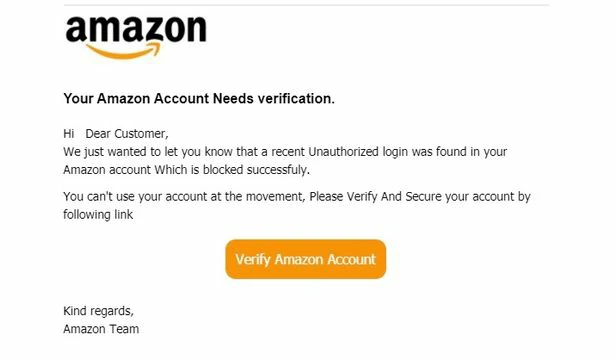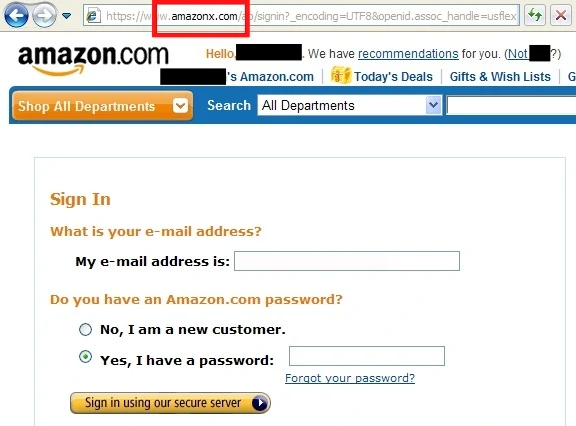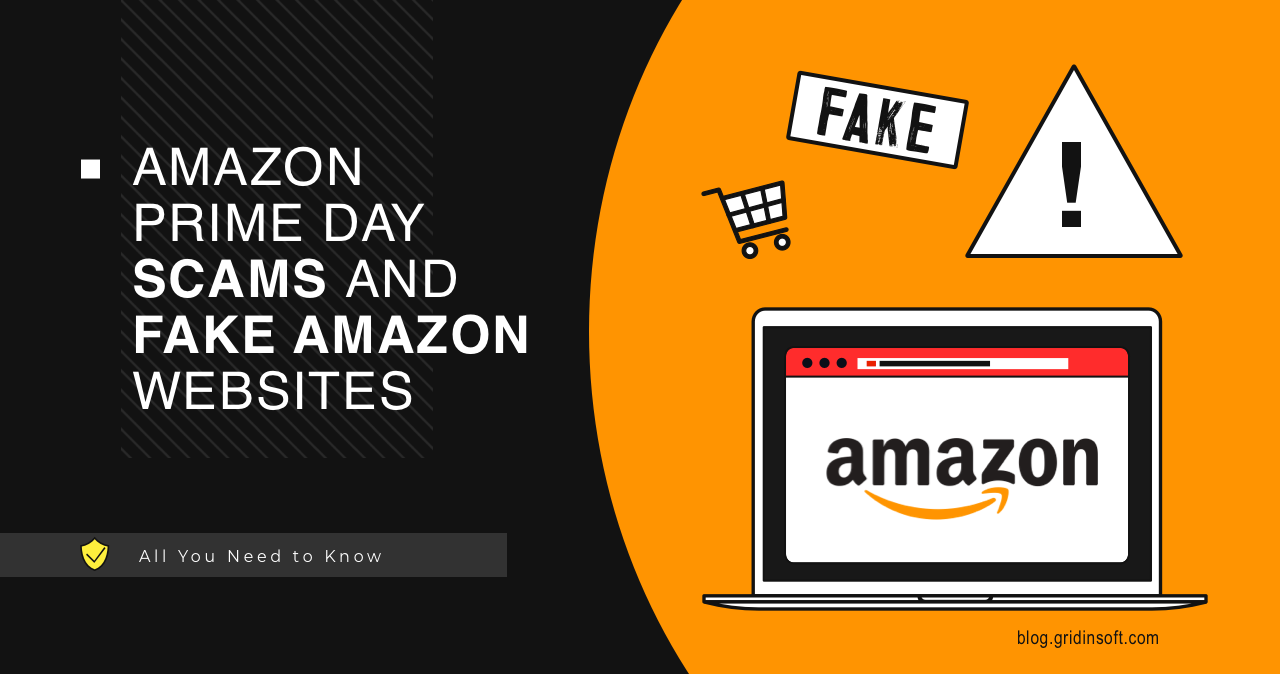Amazon Prime Day scams is a name for fraudulent schemes that parasite on a sell-off day of the famous retailer. Such events pose a significant moment for retailers, but they also present an opportunity for scammers for taking advantage of unsuspecting shoppers. Whole networks of scam pages that mimic Amazon are created, and in this article, I will show what they are, and how to avoid them.
Amazon Prime Day Scams
Prime Day takes place for two consecutive days every year. Shoppers are eager for Prime Day deals, but so are scammers, who aim at defrauding people for their own profit. A classic scam includes an email asking customers to verify their account, leading them to a fake Amazon website to steal their personal information.

Experts say most phishing scams targeting Amazon customers rely on their lack of understanding of how the retailer communicates with individuals. Scott Knapp, Amazon’s Director of Worldwide Buyer Risk Prevention, stated that company representatives rarely contact shoppers directly or ask for order details. Nonetheless, there are plenty of other directions of the fraud that you should be aware of.
Fake Amazon Websites
One of the frequent types of scams is fake websites that superficially resemble the original service or store. I have analyzed two typical examples of such sites, Amazonexal[.]com and Lainedmn[.]com (shut down at the moment). Both claim to be a branch of Amazon and offer items at heavily discounted prices. But obviously, there are no such branches of the company, and both sites gather a complete scam bingo.

- Websites’ age may vary, but the content almost always changes every 2-3 weeks. That is done to scatter the complaints and pretend that earlier trades related to the site never happened.
- Both websites use content from amazon.com and the Amazon logo but they do not have any official affiliation with Amazon. That is, in fact, a huge red flag for any type of shopping site: lacking your own content puts in question the presence of offered goods in the first place.
- None of the sites have reviews and feedback. Some of the pages have the “feedback section”, that in fact consists of made up writings lodged into the site, without the ability to add your own comment.
- None of the sites have a social media presence besides victims’ complaints online. Even if there are visible buttons for Instagram, Twitter or Facebook pages, they are not active 99% of the time.
- Both websites offer ridiculous discounts and elements that infuse a sense of urgency, so the user is constantly pushed towards making a purchase.
Fraud experts assert that in the past 30 days alone, 2,300 new website domains were registered impersonating Amazon. This is just the beginning, and the higher the price, the more fake sites will be created. These fraudulent sites also offer what appears to be a copy of a legit payment page. Most likely, these pages collect all the banking information one types in, so there is also a risk of banking account hijack. Here the list of latest fake websites were used in the scam:
- Amazon-activity[.]com
- Amazonexal[.]com
- Amazon.com.billing-inquiry[.]com
- Lainedmn[.]com
- amazon-store[.]com

Fake Gift Cards and Promo Codes
Another possible vector for Amazon Prime Day scams is fake gift cards and promo codes, that provide significant discounts to anything you buy. While genuine Amazon gift cards promo codes can be found on trustworthy websites, scammers may impose such services, offering to buy these gift cards of promo codes from them.
You can get to such a fraudulent deal while browsing sites and forums related to Amazon shopping. Once in, you will see gift cards for sale at 10-25% of their real value (i.e. $100-250 for a $1000 gift card). Thing is – site owners don’t have any codes to share with you, and after receiving your pay they cut any communication.

Another edge of this scam is free gift cards giveaways. The are in fact more of a constant theme, rather than a seasonal occurrence. Frauds set up a landing page that offers users to get a free $500-$1000 gift card only for sharing their personal data. As you may already know, this data share is one way – no one sends back any free stuff.
How to report a scam
- If you have been scammed, report it to Amazon support through their official website or phone number.
- You should inform your bank as soon as possible. This increases their chances of stopping the fraudster.
- Finally, report the scammers to the platform through which they contacted you.
- If you’re concerned that your Amazon account may be at risk, the seller’s website has tips to help protect your information.
Tips for safe Prime Day shopping
We have some helpful tips to prevent falling victim to scams. It is better to follow them all rather than picking one separate, as there is no universal solution.
- Double-check domain names. If the website address does not start with “Amazon.com,” it could be fraudulent. This applies to other online retailers as well. Look for misspellings, extra punctuation, or anything unusual in the address.
- Stick to Amazon’s official website, app, and stores for purchases. Amazon never asks for payment over the phone/email or through third-party sites.
- It’s safer to enter retailer URLs manually rather than clicking on potentially harmful links. If you receive a suspicious message, claiming that you ordered something, go to «amazon.com» and check your Amazon account’s “My Orders” section to confirm.
- Use a strong password and enable two-factor authentication. Passwords should be extended, unique, and random. Avoid reusing passwords across multiple accounts.
- Treat limited-time Prime Day deals with caution. Offers requiring immediate purchase may be cybercriminal traps.
Scammers don’t take breaks, and with Prime Day around the corner. So, it’s essential to remain vigilant against fraud. The tips we’ve provided can help safeguard you against online scams.




